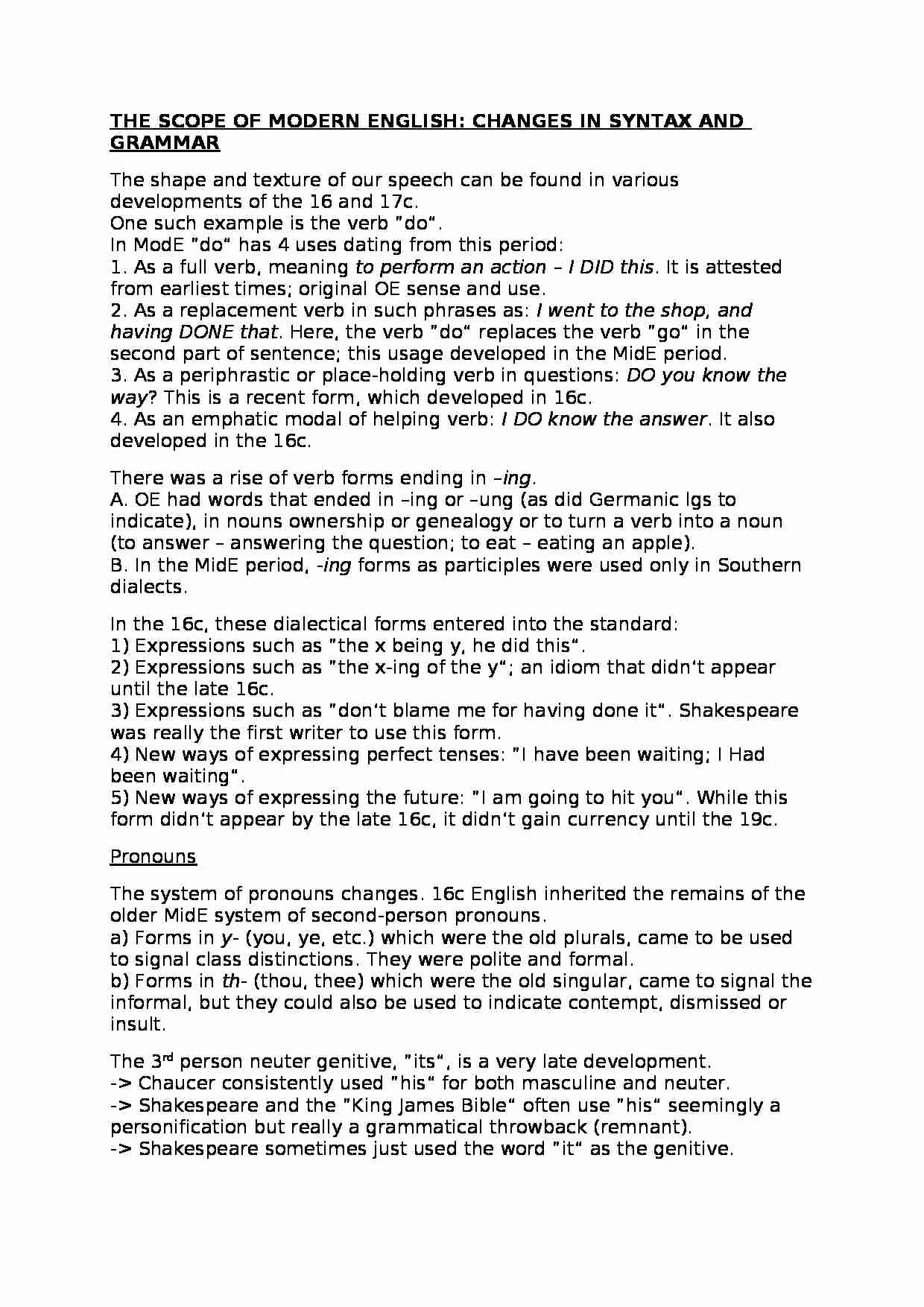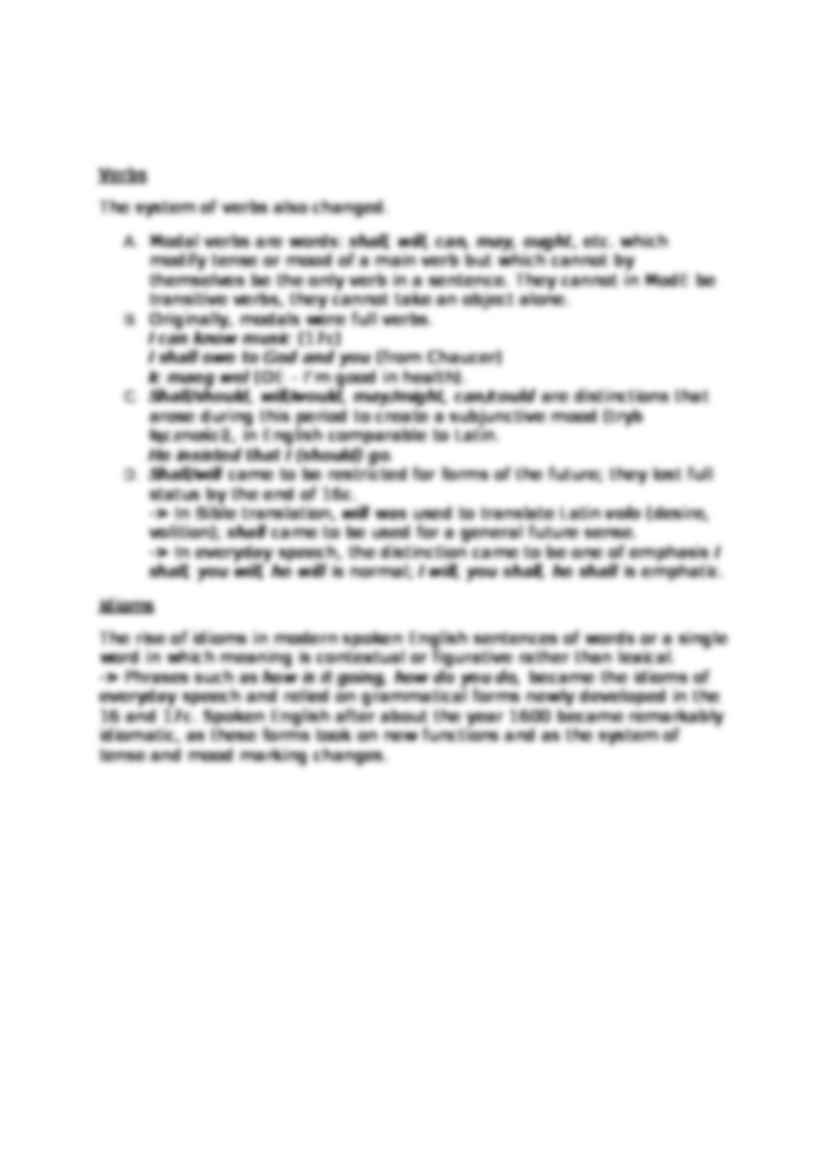To tylko jedna z 2 stron tej notatki. Zaloguj się aby zobaczyć ten dokument.
Zobacz
całą notatkę


THE SCOPE OF MODERN ENGLISH: CHANGES IN SYNTAX AND GRAMMAR
The shape and texture of our speech can be found in various developments of the 16 and 17c. One such example is the verb “do”. In ModE “do” has 4 uses dating from this period: 1. As a full verb, meaning to perform an action - I DID this. It is attested from earliest times; original OE sense and use. 2. As a replacement verb in such phrases as: I went to the shop, and having DONE that. Here, the verb “do” replaces the verb “go” in the second part of sentence; this usage developed in the MidE period. 3. As a periphrastic or place-holding verb in questions: DO you know the way? This is a recent form, which developed in 16c. 4. As an emphatic modal of helping verb: I DO know the answer. It also developed in the 16c.
There was a rise of verb forms ending in -ing. A. OE had words that ended in -ing or -ung (as did Germanic lgs to indicate), in nouns ownership or genealogy or to turn a verb into a noun (to answer - answering the question; to eat - eating an apple). B. In the MidE period, -ing forms as participles were used only in Southern dialects.
In the 16c, these dialectical forms entered into the standard: 1) Expressions such as “the x being y, he did this”. 2) Expressions such as “the x-ing of the y”; an idiom that didn't appear until the late 16c. 3) Expressions such as “don't blame me for having done it”. Shakespeare was really the first writer to use this form. 4) New ways of expressing perfect tenses: “I have been waiting; I Had been waiting”. 5) New ways of expressing the future: “I am going to hit you”. While this form didn't appear by the late 16c, it didn't gain currency until the 19c.
Pronouns
The system of pronouns changes. 16c English inherited the remains of the older MidE system of second-person pronouns. a) Forms in y- (you, ye, etc.) which were the old plurals, came to be used to signal class distinctions. They were polite and formal. b) Forms in th- (thou, thee) which were the old singular, came to signal the informal, but they could also be used to indicate contempt, dismissed or insult.
The 3rd person neuter genitive, “its”, is a very late development. - Chaucer consistently used “his” for both masculine and neuter. - Shakespeare and the “King James Bible” often use “his” seemingly a personification but really a grammatical throwback (remnant). - Shakespeare sometimes just used the word “it” as the genitive.
Verbs
The system of verbs also changed. Modal verbs are words: shall, will, can, may, ought, etc. which modify tense or mood of a main verb but which cannot by themselves be the only verb in a sentence. They cannot in ModE be transitive verbs, they cannot take an object alone.
Originally, modals were full verbs. I can know music
... zobacz całą notatkę




Komentarze użytkowników (0)